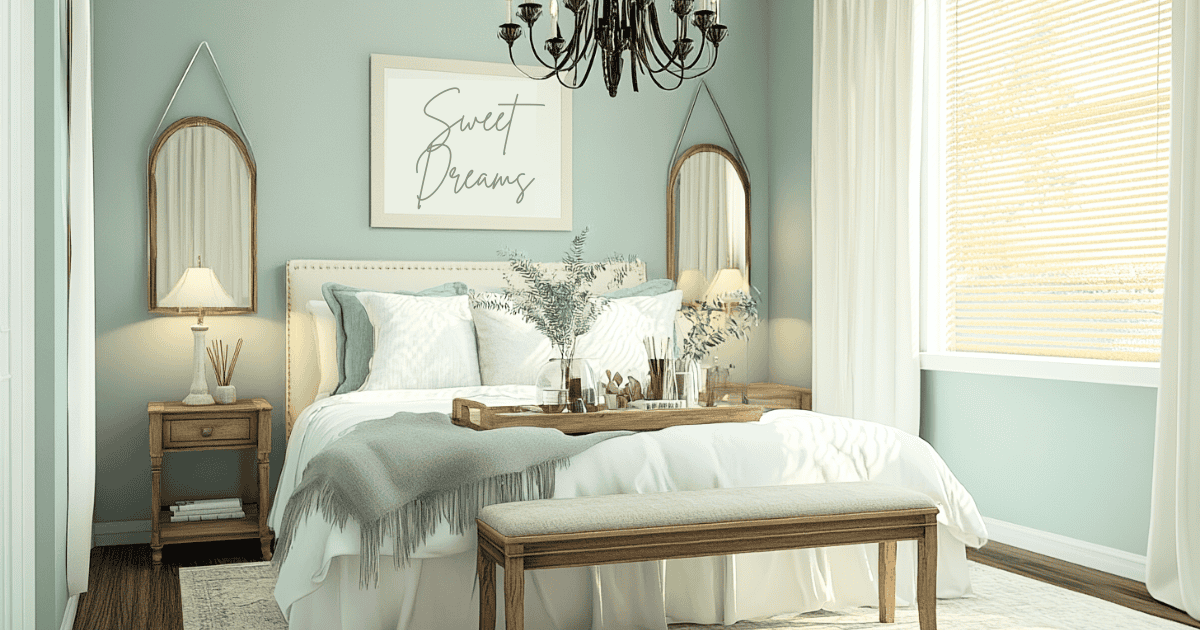How to Organize a Bedroom in 10 Easy Steps (and Keep It That Way!)
Does the thought of your bedroom fill you with stress instead of serenity? Do you find yourself constantly digging through piles of clothes or tripping over clutter? You’re not alone. Learning how to organize bedroom spaces can feel daunting, but it doesn’t have to be. A messy bedroom can weigh you down mentally and emotionally, making it harder to relax, sleep well, and even find your favorite shirt in the morning.
But what if your bedroom could be a sanctuary? A place of calm, order, and peace?
It’s absolutely possible!
Transforming your bedroom into an organized haven is easier than you think. By taking a few simple steps, you can create a space that makes your daily life run smoother. An organized bedroom leads to better sleep, a happier mood, and a more productive you.
Step 1: Visualize Your Ideal Bedroom
Before you start decluttering and organizing, take a moment to envision your dream bedroom. What kind of space do you want to create?
Find Inspiration
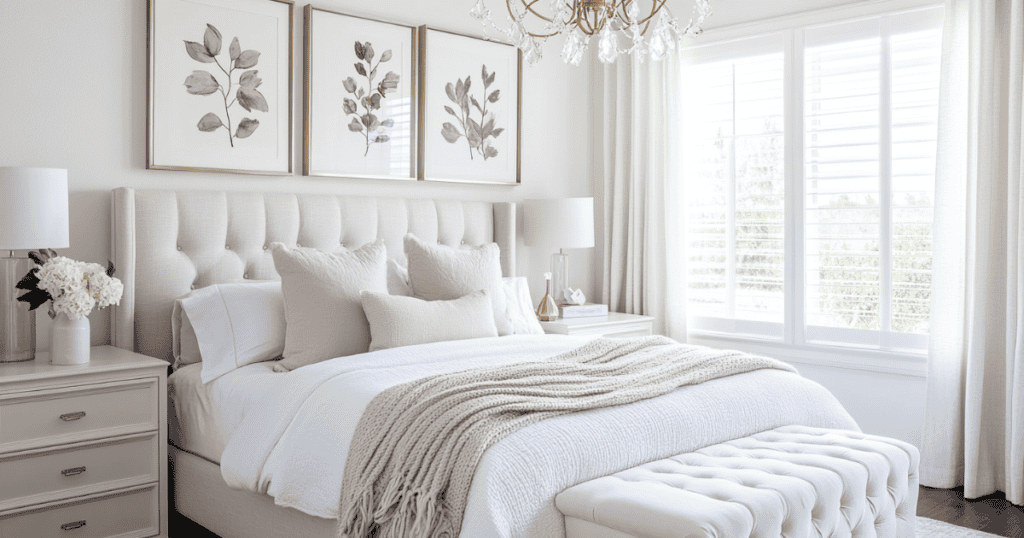
Browse Pinterest, Instagram, or your favorite home decor magazines for bedroom ideas. Save images that resonate with you and create a vision board or mood board.
Define Your Style
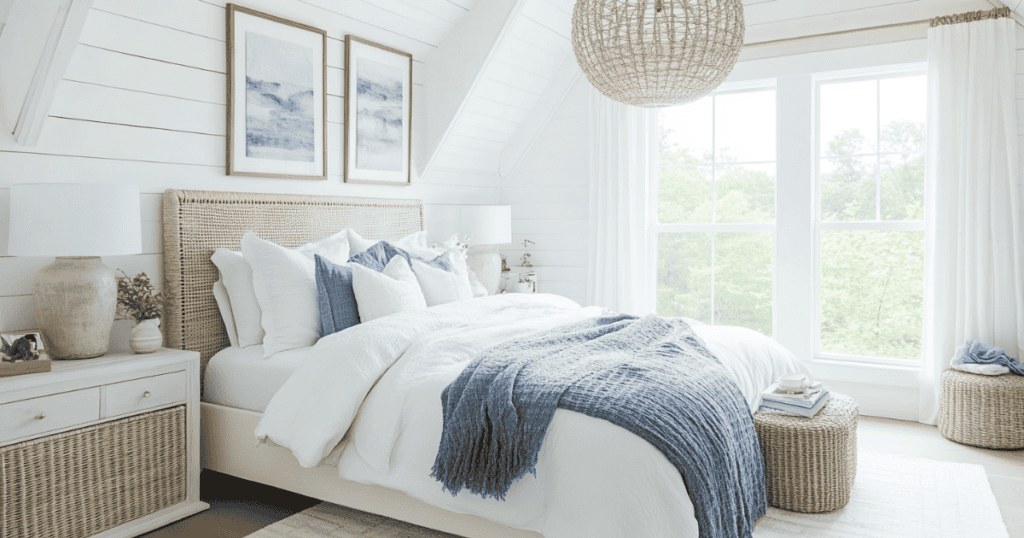
Do you prefer a calm and minimalist aesthetic? A vibrant and eclectic space? A cozy and rustic retreat? Identifying your style will guide your decisions throughout the organization process.
Set Goals
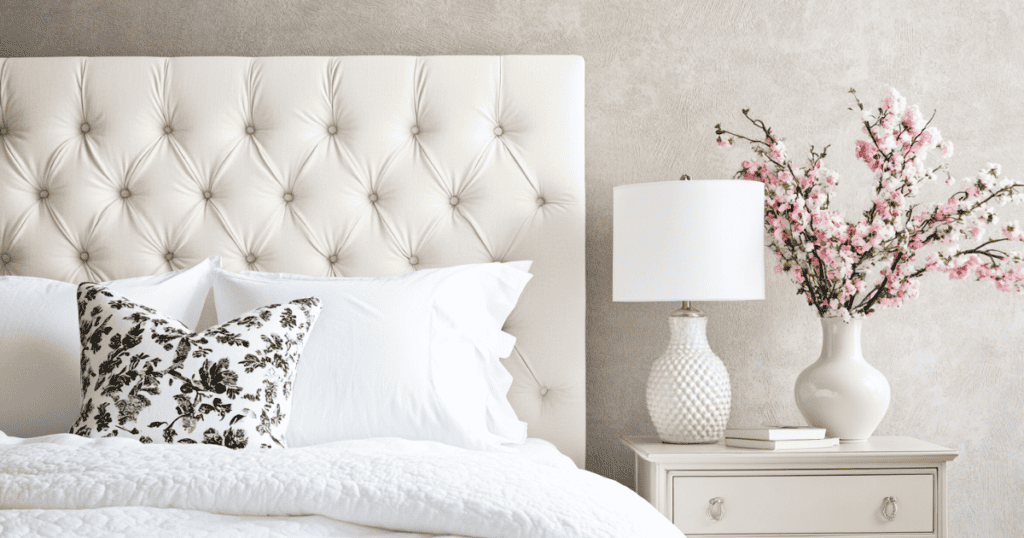
What do you want to achieve with your bedroom makeover? Better sleep? More relaxation? A space for creativity or work? Defining your goals will help you prioritize and make choices that align with your intentions.
Step 2: Declutter Ruthlessly
Now that you have a vision, it’s time to clear the canvas. Decluttering is a crucial step in creating an organized bedroom.
Emotional Attachment vs. Practicality
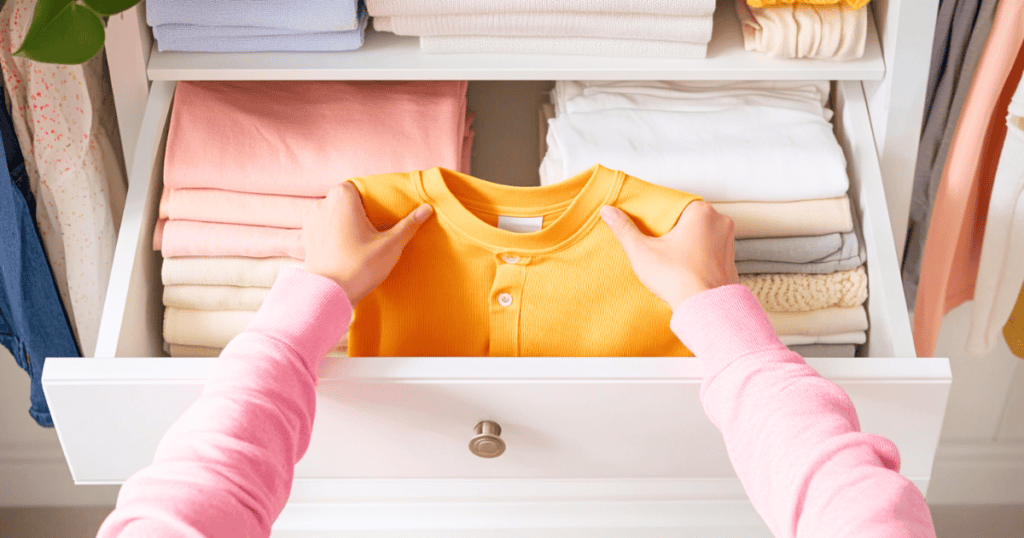
It’s easy to get attached to things, but be honest with yourself. If you haven’t used something in a year or it no longer serves you, it’s time to let it go.
“One In, One Out” Rule
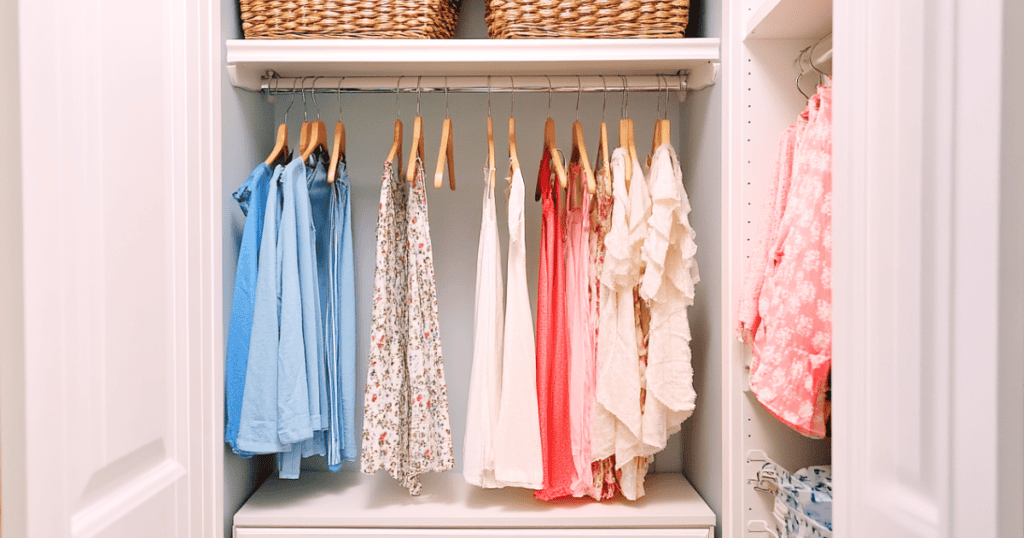
To maintain your newly organized bedroom, adopt the “one in, one out” rule. Whenever you bring something new into your bedroom, get rid of something old. This will prevent clutter from building up again.
The Four-Box Method
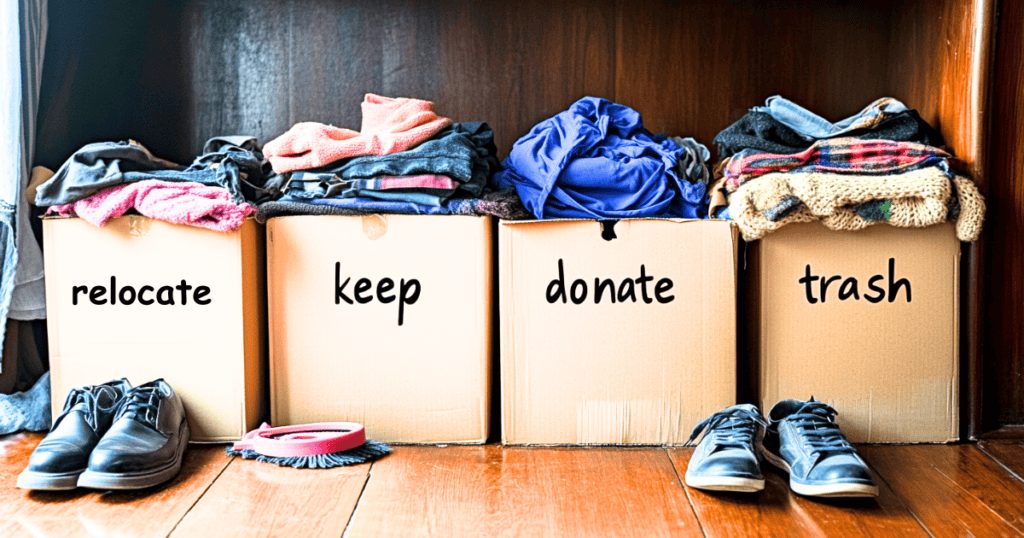
Grab four boxes or bins and label them “Keep,” “Donate/Sell,” “Trash,” and “Relocate.” Go through each item in your bedroom and decide which box it belongs in.
- Keep: These are the items you use regularly and love. Think of your favorite clothes, books you reread, or sentimental items that bring you joy.
- Donate/Sell: These are items in good condition that you no longer use or need. Clothes that no longer fit, books you won’t read again, or decor that doesn’t match your style can find a new home through donation or selling.
- Trash: Anything broken, damaged, or beyond repair goes in this box. Old magazines, ripped clothes, or expired cosmetics can all be tossed.
- Relocate: These items belong in a different room of your home. Maybe it’s a book that should be in the home office or a pair of shoes that belong in the entryway.
Go through each item in your bedroom and decide which box it belongs in.
Step 3: Choose the Right Storage Solutions
An organized bedroom requires efficient storage. Evaluate your specific needs and choose solutions that maximize space and functionality.
Assess Your Needs
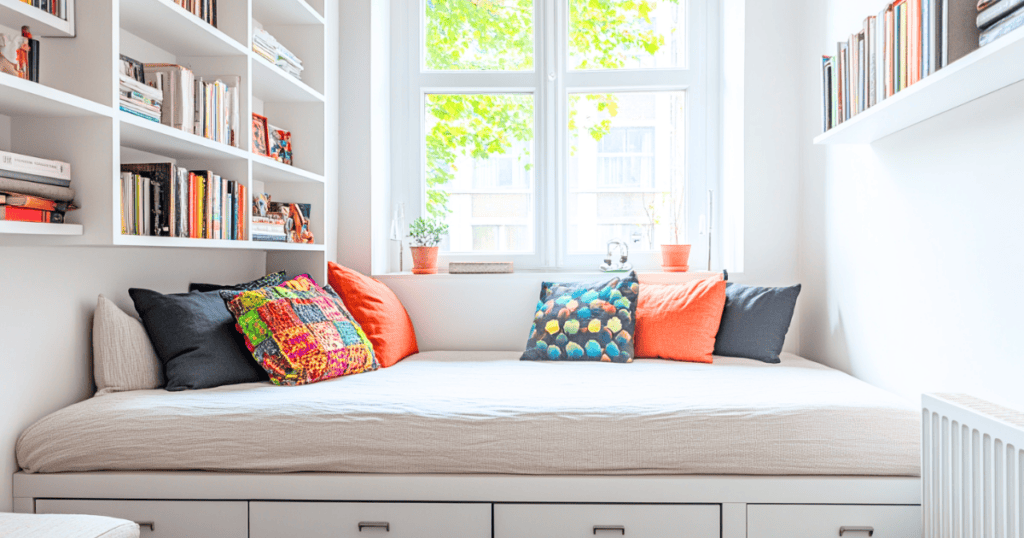
Take inventory of the items you need to store. Do you have a lot of clothes, books, or hobby supplies? Knowing what you have will help you determine the best storage options.
Under-Bed Storage
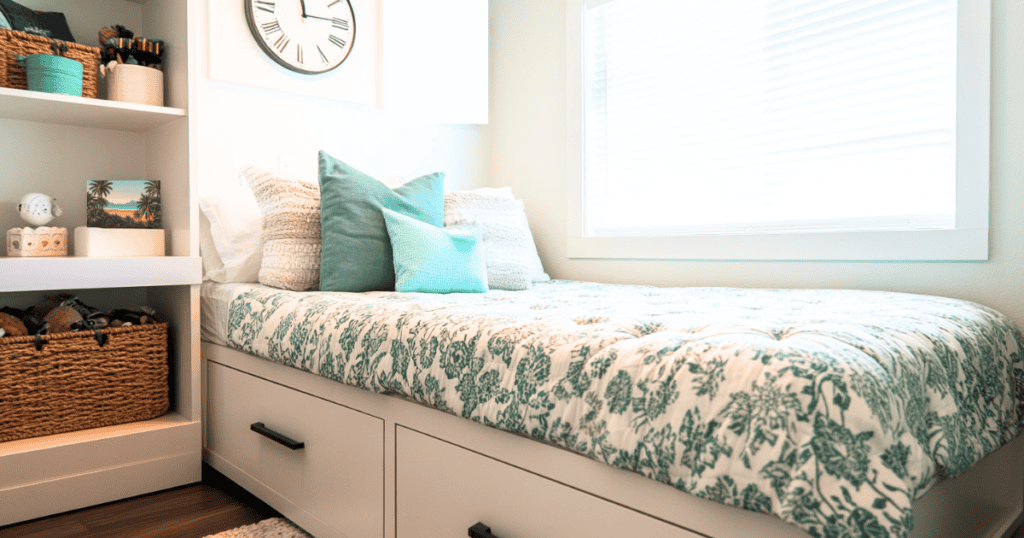
Don’t let valuable space go to waste! Invest in under-bed storage bins or drawers to stow away seasonal clothing, extra linens, or anything else you don’t need daily access to.
Closet Organization
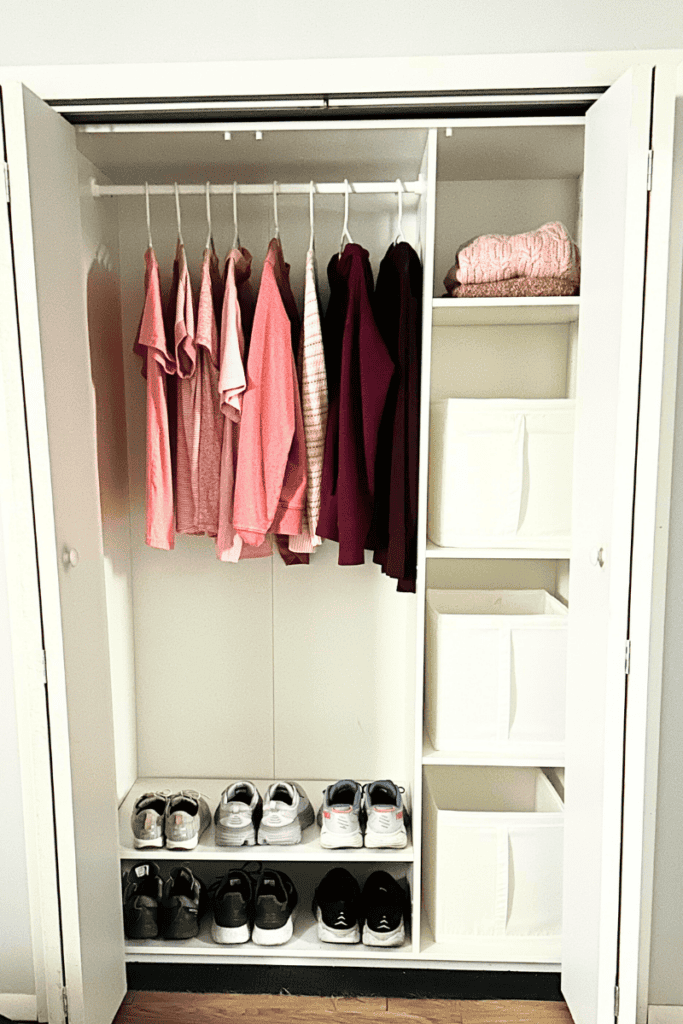
Make the most of your closet space by utilizing drawers, shelves, hanging organizers, and shoe racks.
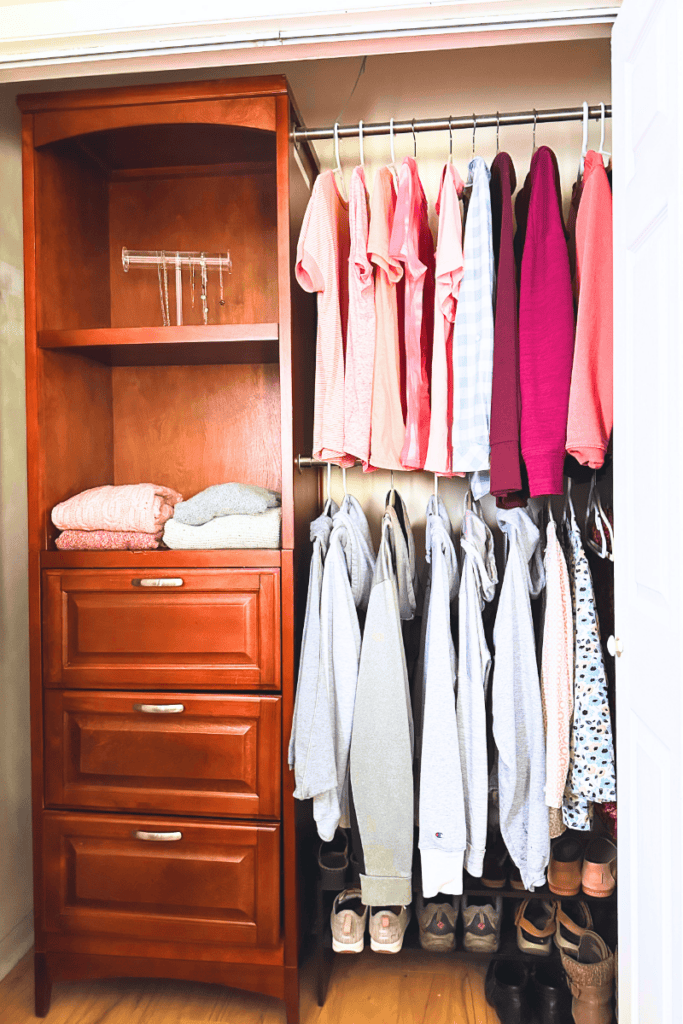
Consider adding a second rod for double hanging, or hanging shelves to create more storage space.
Multi-Functional Furniture
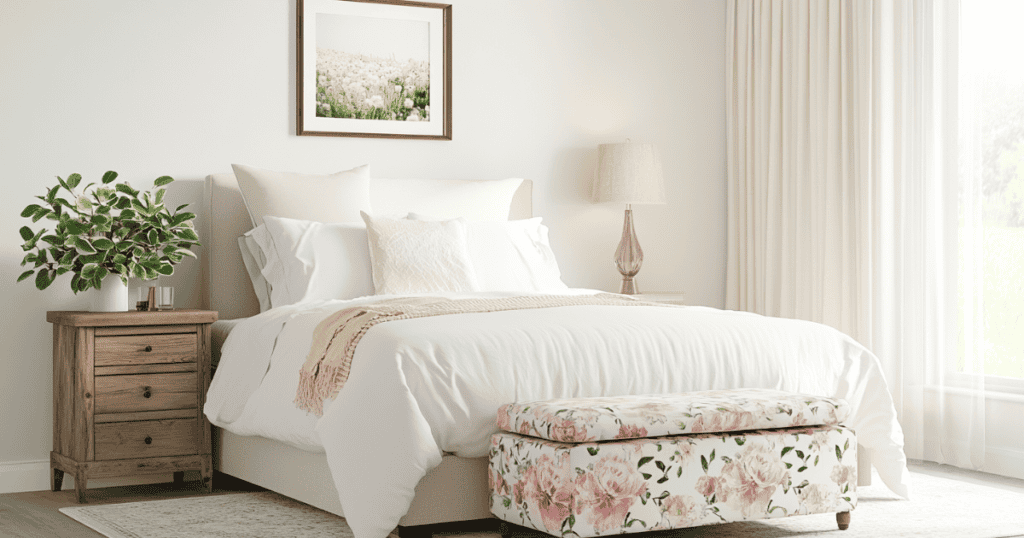
Opt for furniture that serves dual purposes. A storage ottoman can provide extra seating and a place to store blankets. Nightstands with drawers can keep books and personal items organized.
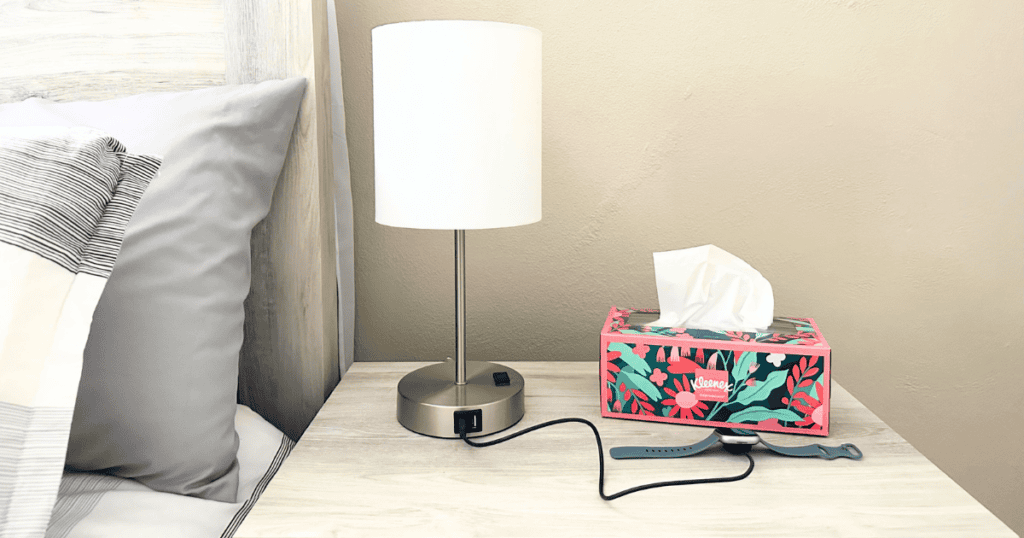
A lamp equipped with USB ports can provide light and serve as a convenient charging station for electronic devices.
Step 4: Conquer Your Closet
Your closet is often the biggest culprit of bedroom clutter. A well-organized closet can make a significant difference in your daily routine.
Seasonal Rotation

Twice a year, pack away clothes that are out of season. This will free up space in your closet and make it easier to find what you need.
Hanging vs. Folding
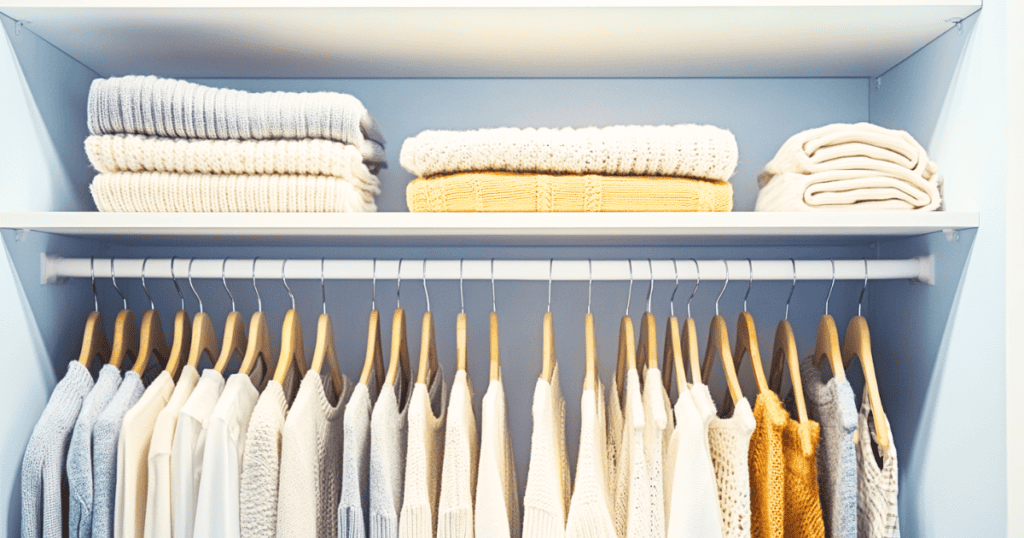
Certain garments are best hung (dresses, suits, delicate items), while others are better folded (t-shirts, sweaters, jeans). Experiment to find what works best for your space and clothing.
Shoe Storage
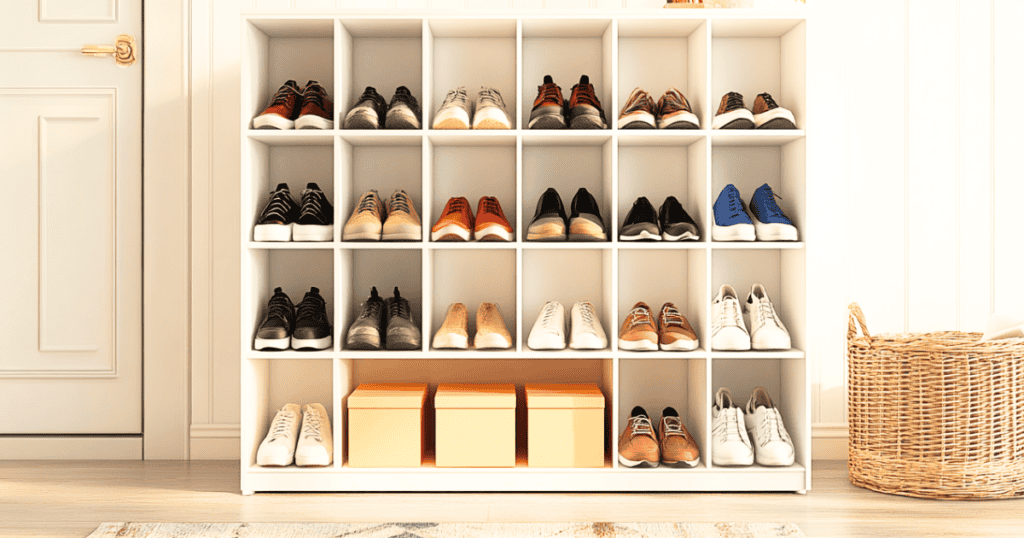
Keep your shoes organized with shoe racks, boxes, or over-the-door organizers. This will prevent them from piling up on the floor and creating a tripping hazard.
Create a Capsule Wardrobe

A capsule wardrobe is a minimalist approach to clothing. It consists of a few essential pieces that can be mixed and matched to create various outfits. This can significantly reduce closet clutter and make getting dressed easier.
Start by selecting 30-40 pieces that you love and wear regularly. Then, get rid of anything that doesn’t fit, is damaged, or you haven’t worn in the past year.
To get you started, here’s a sample list of essential pieces for a capsule wardrobe:
Tops:
- 2 plain t-shirts (white, black, or navy)
- 1 button-down shirt
- 1 casual blouse
- 1 sweater
- 1 light jacket (denim or bomber)
Bottoms:
- 2 pairs of jeans (dark wash, light wash)
- 1 pair of black dress pants
- 1 skirt (knee-length or midi)
- 1 pair of comfortable shorts
Dresses (optional):
- 1 casual day dress
- 1 little black dress (if you attend formal events)
Shoes:
- 1 pair of sneakers
- 1 pair of comfortable flats
- 1 pair of dress shoes (optional)
Remember, this is just a starting point. You can customize your capsule wardrobe to fit your style, climate, and lifestyle. The key is to choose versatile pieces that you love and can easily mix and match to create a variety of outfits. Our Minimalist Closet Challenge can give you more guidance if you need it.
Step 5: Tame Your Nightstand
Your nightstand should be a haven of peace and relaxation, not a dumping ground for clutter.
Essentials Only
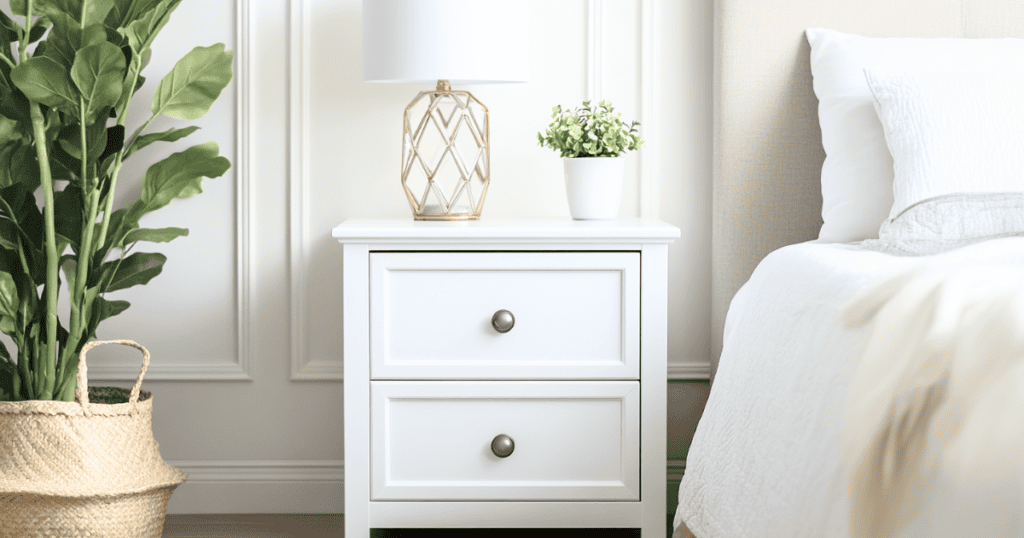
Keep only the essentials on your nightstand: a lamp, a book or e-reader, and maybe a small personal item. Everything else should be stored in a drawer or basket.
Hidden Storage
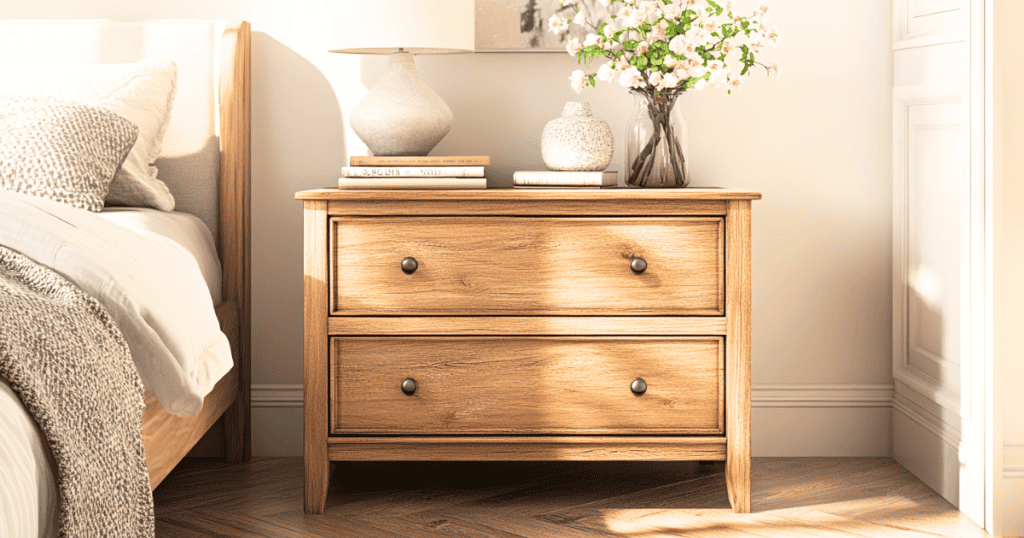
Choose a nightstand with drawers or baskets to keep clutter out of sight. This will help you create a more visually calming space.
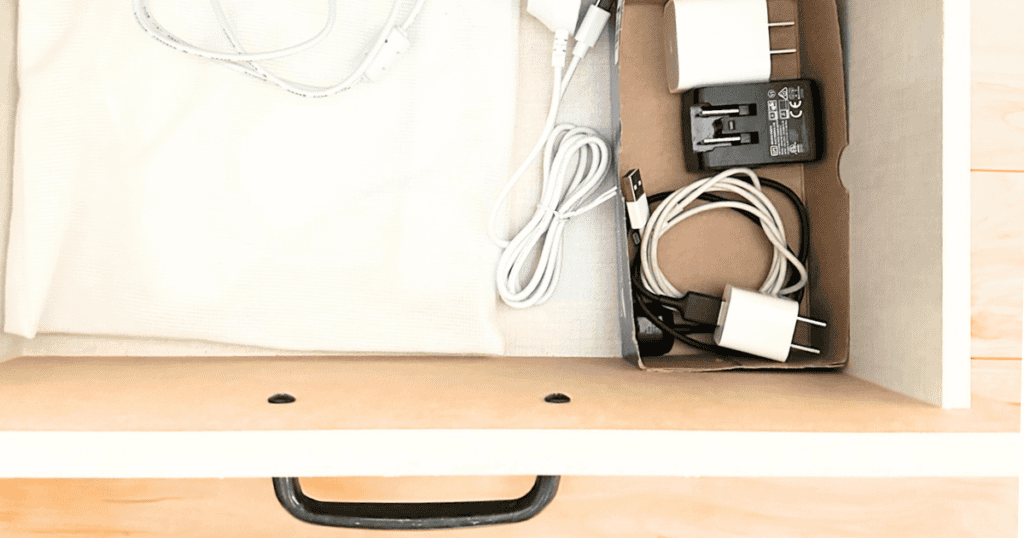
Repurpose items you already have around the house to help keep things organized in your drawers or baskets. For example, use a decorative box to hold your reading glasses or repurpose the box that your checkbook came in to store charging cords.
Step 6: Organize Your Dresser
Your dresser should be a haven of order, not a chaotic jumble.
Drawer Dividers
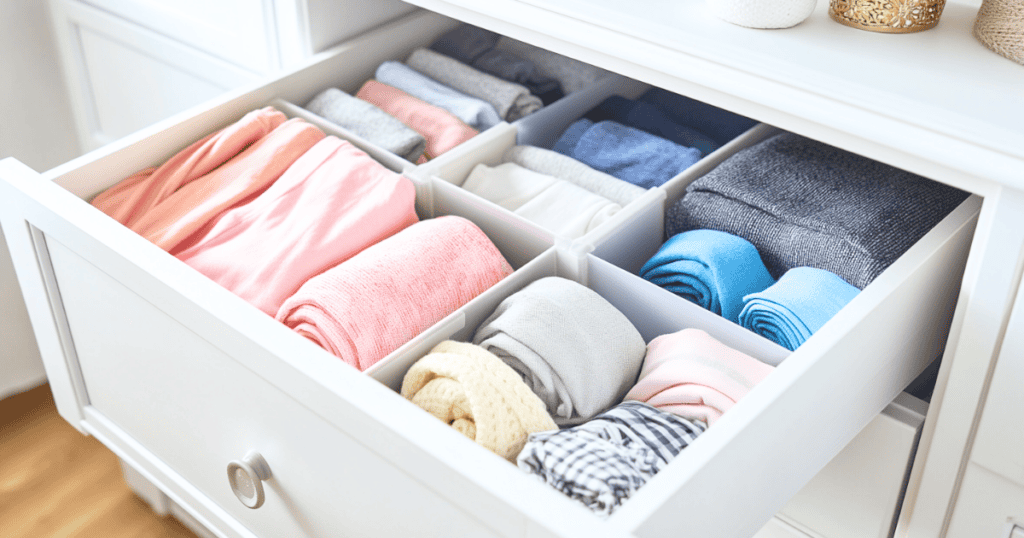
Keep socks, underwear, and other small items neatly separated with drawer dividers. This will make it easier to find what you need and prevent everything from getting mixed up.
Folding Techniques
Learn space-saving folding techniques like the KonMari method or the army roll to maximize drawer space and keep your clothes wrinkle-free.
Jewelry Storage
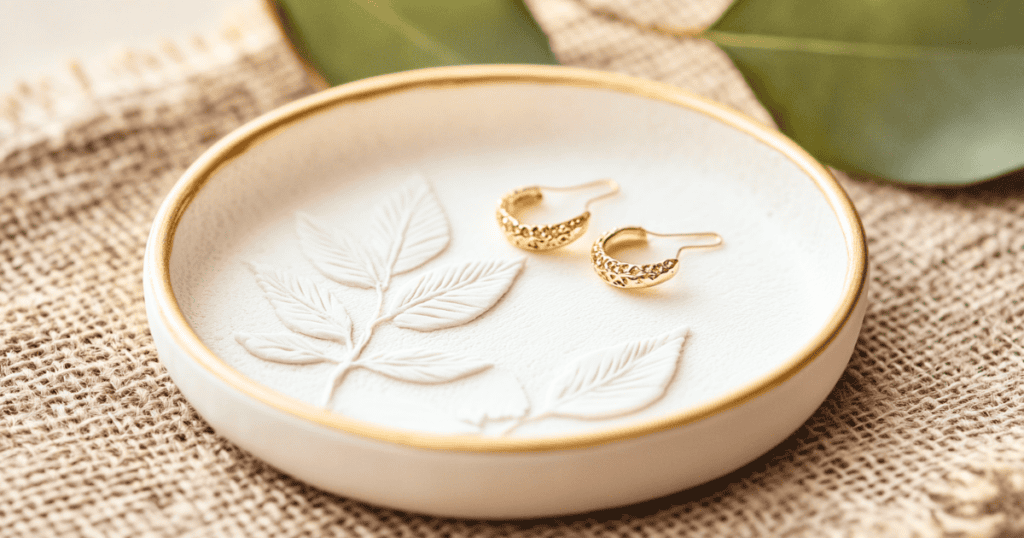
Invest in jewelry trays, boxes, or hanging organizers to keep your necklaces, bracelets, and earrings from getting tangled and lost.
Step 7: Make Your Bed a Sanctuary
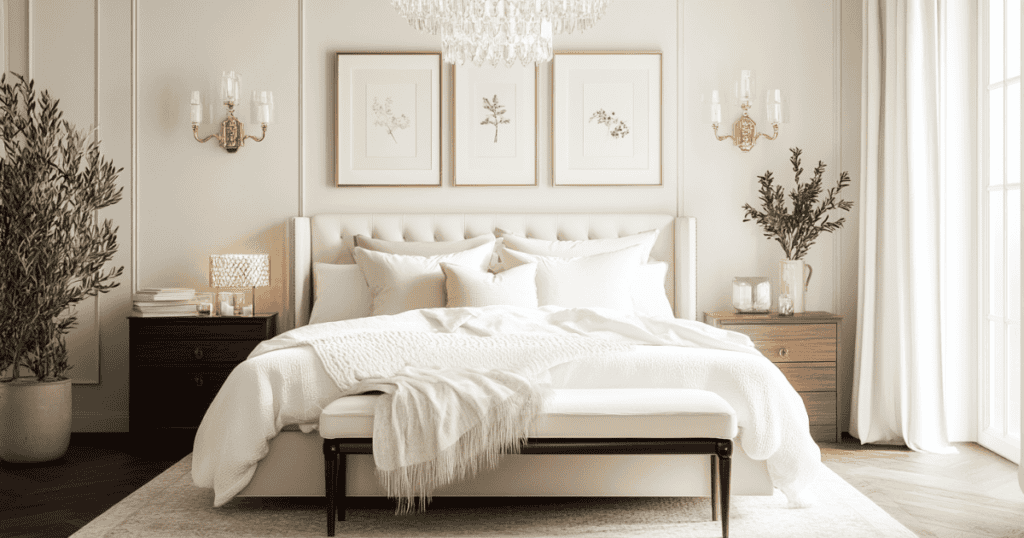
Your bed is the centerpiece of your bedroom, so make it inviting and restful.
Quality Bedding
Invest in comfortable sheets, pillows, and a mattress that supports your sleep needs.
Decorative Pillows
Add a few decorative pillows to express your personality and add a touch of luxury.
Bedside Rug
A soft rug beside your bed creates a cozy and inviting atmosphere and adds warmth to your room.
Step 8: Clear Your Surfaces
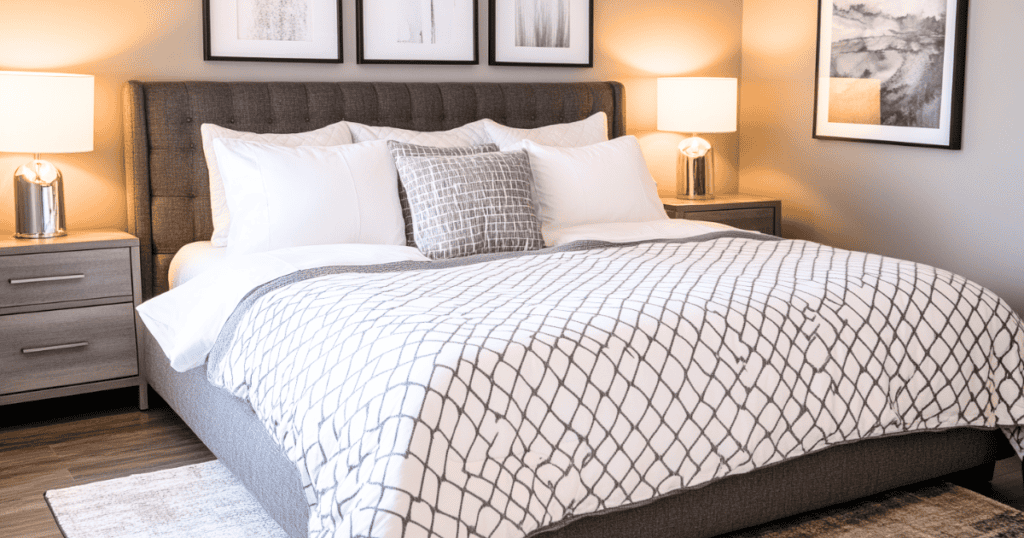
Clear surfaces instantly make a room look neater.
The “No Dumping Zone” Rule
Designate a specific spot for incoming items, like a basket or tray, to prevent clutter from accumulating on your dresser or nightstand.
Decorative Trays
Corral loose items like keys, jewelry, or change on decorative trays. This not only looks stylish but also keeps small items from getting lost.
Regular Clean-Ups
Get in the habit of doing a quick tidy of your bedroom each day. Put away clothes, books, or other items that have found their way onto surfaces.
Step 9: Personalize Your Space
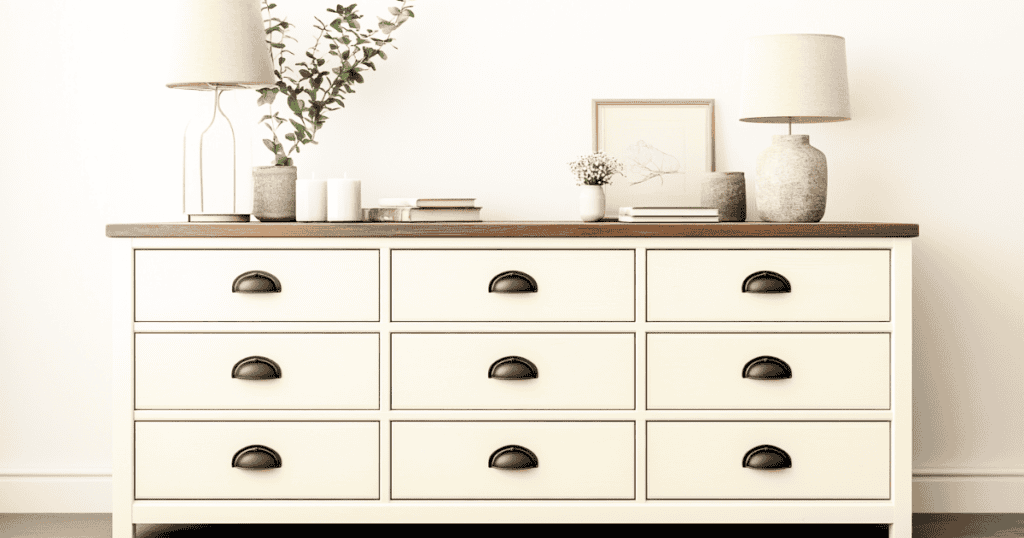
Your bedroom should reflect your unique personality and style.
Artwork and Photos
Hang artwork or photos that bring you joy.
Plants
Bring a touch of nature indoors with a few houseplants. They can improve air quality and add a sense of calm.
Sentimental Items
Display a few cherished mementos or souvenirs that have special meaning to you.
Step 10: Maintain Your Organized Bedroom
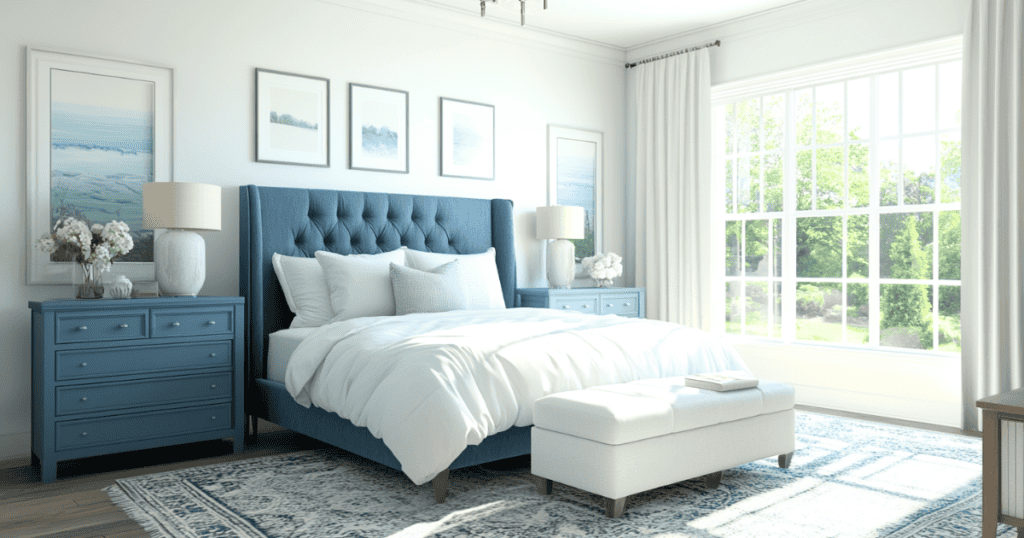
Once your bedroom is organized, the key is to keep it that way.
Daily Habits
Make your bed every morning, put away clothes immediately after wearing them, and return items to their designated spots.
Weekly Tidying
Schedule a quick sweep and dusting of your bedroom once a week to prevent dust buildup.
Monthly Review
Take a few minutes each month to reassess your organization system. Tweak anything that isn’t working and make adjustments as needed.
Frequently Asked Questions
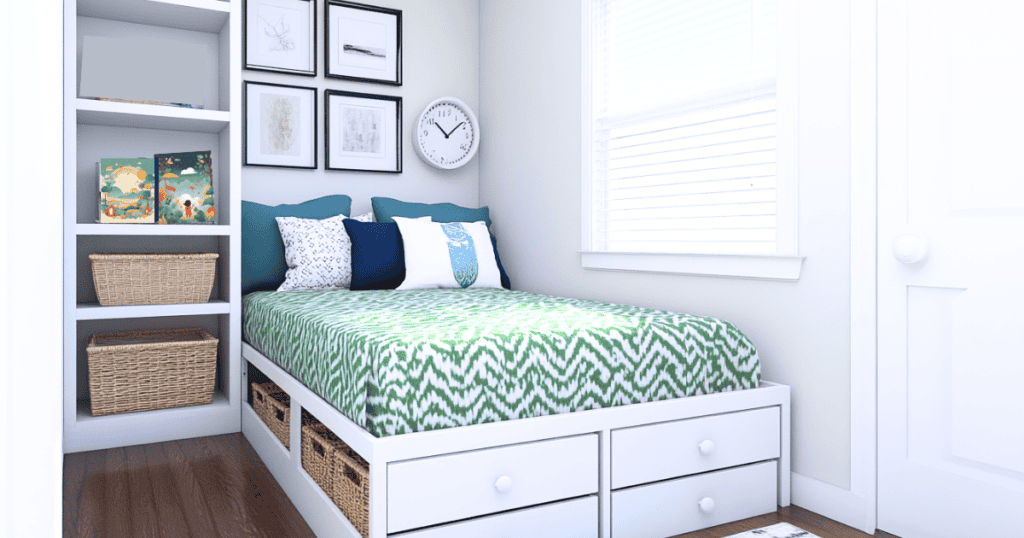
How do I organize a small bedroom?
Organizing a small bedroom requires creativity and smart storage solutions. Maximize vertical space with shelves, wall-mounted organizers, or hanging storage. Utilize under-bed storage for seasonal items or extra linens.
Opt for multi-functional furniture like storage ottomans or beds with built-in drawers. Keep surfaces clear and minimize clutter to create an illusion of spaciousness.
How can I make my bedroom feel more relaxing?
There are several ways to create a more relaxing bedroom atmosphere:
- Choose calming colors: Soft neutrals, pastels, or cool blues and greens can promote a sense of tranquility.
- Soft lighting: Use warm-toned light bulbs and consider adding dimmer switches for adjustable lighting.
- Reduce clutter: Keep surfaces clear and minimize visual distractions.
- Incorporate natural elements: Add plants, flowers, or natural materials like wood or bamboo to your decor.
- Comfort is key: Invest in comfortable bedding, pillows, and a mattress that supports your sleep needs.
- Sensory experience: Play calming music or nature sounds, use aromatherapy diffusers or candles, and ensure the temperature is comfortable.

